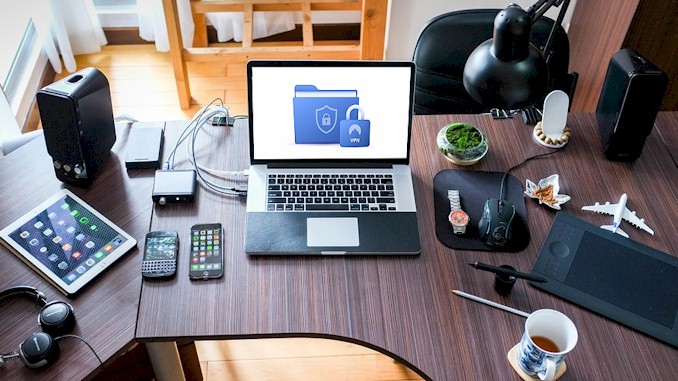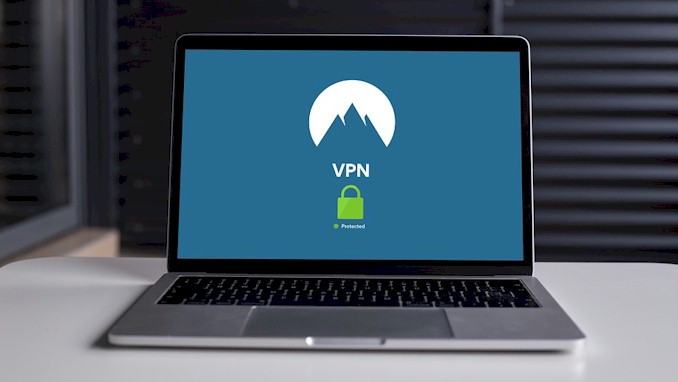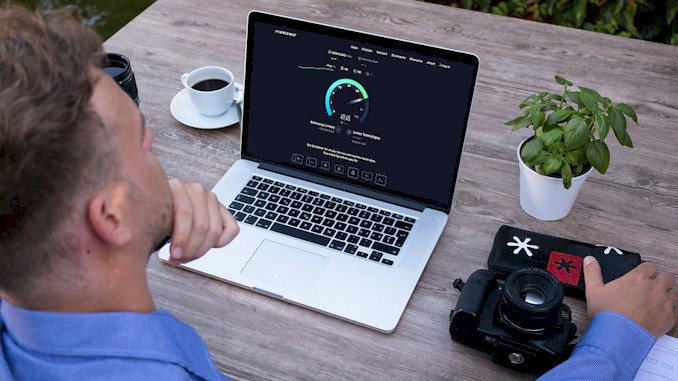The Ultimate Guide to Stable VPN Connections
If you are using a VPN to protect your online privacy, access geo-restricted content, or bypass censorship, you know how frustrating it can be when your connection drops or slows down. A stable VPN connection is essential for a smooth and secure online experience. But how can you make sure your VPN connection is stable and reliable? In this blog post, I will share with you some tips and tricks that I have learned from years of using VPNs. I will show you how to choose the best VPN service, how to optimize your VPN settings, and how to troubleshoot common VPN issues. By following these steps, you will be able to enjoy a fast and stable VPN connection that meets your needs.
A VPN connection is stable when it maintains a consistent and secure link between the user’s device and the VPN server. A stable VPN connection does not drop, lag, or leak data. To make a VPN connection stable, the user needs to consider several factors, such as the quality of the VPN service, the location and load of the VPN server, the speed and security of the user’s internet connection, and the configuration of the VPN client. These factors can affect the performance and reliability of the VPN connection in different ways.
In this blog post, I will explain each of these factors in detail and give you some practical advice on how to improve them. I will also share with you some of the best VPN services that I have tested and used myself. These VPN services offer fast and stable connections, as well as advanced features and excellent customer support. By following my recommendations, you will be able to enjoy a stable VPN connection that suits your online needs and preferences. So, let’s get started!
How to optimize your VPN settings for a stable connection
One of the most important steps to ensure a stable VPN connection is to optimize your VPN settings. Your VPN settings can affect how your VPN connects to the server, encrypts your data, and handles network traffic. By tweaking some of these settings, you can improve the stability and performance of your VPN connection.
The first setting you should check is the VPN protocol. The VPN protocol is the method that your VPN uses to establish and maintain a secure connection. Different VPN protocols have different advantages and disadvantages in terms of speed, security, and reliability. Some of the most common VPN protocols are OpenVPN, IKEv2/IPSec, L2TP/IPSec, PPTP, and WireGuard.
Generally speaking, OpenVPN is considered to be the most secure and versatile VPN protocol, as it offers strong encryption, high compatibility, and good speed. However, OpenVPN can also be affected by firewalls and network congestion, which can cause connection drops or slowdowns. If you experience these issues with OpenVPN, you can try switching to another protocol that may work better for your network environment.
For example, IKEv2/IPSec is a fast and secure protocol that is especially good for mobile devices, as it can quickly reconnect after changing networks or losing signal. L2TP/IPSec is another secure protocol that can bypass some firewalls and censorship measures. PPTP is an old and fast protocol that can work well for streaming or browsing, but it has weak encryption and security flaws. WireGuard is a new and innovative protocol that promises to offer faster and more stable connections than any other protocol, but it is still in development and may not be supported by all VPN services or devices.
To optimize your VPN settings for a stable connection, you should choose the protocol that best suits your needs and network conditions. You can usually change the protocol in your VPN client settings or app preferences. If you are not sure which protocol to use, you can contact your VPN service provider or check their website for more information and guidance.
How to troubleshoot common VPN issues and fix them
Even if you optimize your VPN settings, you may still encounter some common VPN issues that can affect the stability of your connection. These issues can range from minor annoyances to major problems that can compromise your online security and privacy. Fortunately, most of these issues can be easily fixed with some simple troubleshooting steps.
One of the most common VPN issues is a slow or unstable connection. This can be caused by various factors, such as the distance and load of the VPN server, the speed and quality of your internet connection, the encryption level and protocol of your VPN, and the bandwidth usage of your device or network. To fix this issue, you can try the following solutions:
- Change your VPN server. Choose a server that is closer to your location, has less traffic, and supports the protocol and features you need. You can usually see the server location, load, and ping time in your VPN client or app.
- Check your internet connection. Make sure you have a fast and reliable internet connection that can support your VPN usage. You can test your internet speed and latency with online tools like Speedtest or Pingtest. If your internet connection is slow or unstable, you can try restarting your router or modem, switching to a different network or ISP, or using a wired connection instead of Wi-Fi.
- Adjust your encryption level and protocol. Lowering your encryption level or changing your protocol can improve your connection speed and stability, but it may also reduce your security and privacy. You should only do this if you trust your VPN service provider and you are not doing any sensitive online activities. You can usually change these settings in your VPN client or app.
- Reduce your bandwidth usage. If you are using too much bandwidth on your device or network, you may experience a slow or unstable VPN connection. You can reduce your bandwidth usage by closing any unnecessary apps or programs, limiting the number of devices connected to your VPN or network, or avoiding high-bandwidth activities like streaming or downloading.
Another common VPN issue is a connection drop or leak. This happens when your VPN connection fails or disconnects unexpectedly, exposing your real IP address and online activity to third parties. This can compromise your online security and privacy, as well as prevent you from accessing geo-restricted or censored content. To fix this issue, you can try the following solutions:
- Enable a kill switch. A kill switch is a feature that automatically blocks all internet traffic on your device if your VPN connection drops or leaks. This prevents any data from being exposed or intercepted by third parties. You can usually enable a kill switch in your VPN client or app settings.
- Use a DNS leak protection. A DNS leak is a type of leak that occurs when your device uses a DNS server that is not provided by your VPN service provider. This can reveal your real IP address and online activity to third parties, such as your ISP or DNS provider. You can use a DNS leak protection to force your device to use only the DNS servers provided by your VPN service provider. You can usually enable a DNS leak protection in your VPN client or app settings.
- Check for WebRTC leaks. WebRTC is a technology that allows web browsers to communicate directly with each other without using a server. This can improve the performance and quality of web-based applications like video calls or file sharing. However, WebRTC can also cause leaks that reveal your real IP address and online activity to third parties, even if you are using a VPN. You can check for WebRTC leaks with online tools like BrowserLeaks or IPLeak. If you have a WebRTC leak, you can disable WebRTC in your browser settings or use a browser extension that blocks WebRTC requests.
These are some of the most common VPN issues and how to fix them. However, there may be other issues that are specific to your VPN service provider, device, or network. If you encounter any other issues that affect the stability of your VPN connection, you should contact your VPN service provider for more assistance and support.
How to test your VPN connection speed and security
After you optimize your VPN settings and troubleshoot any VPN issues, you may want to test your VPN connection speed and security. This can help you verify that your VPN connection is working properly and that it meets your online needs and expectations. There are several online tools and methods that you can use to test your VPN connection speed and security.
To test your VPN connection speed, you can use online speed tests that measure your download and upload speeds, as well as your ping or latency. These metrics can affect how fast and smooth your online experience is, especially for activities like streaming, gaming, or video conferencing. Some of the most popular and reliable online speed tests are Speedtest, Fast, and TestMy.
To test your VPN connection speed, you should run the speed test before and after connecting to your VPN. This can help you compare the difference in your connection speed with and without the VPN. You should also run the speed test on different VPN servers and protocols to see which ones offer the best performance for your location and network. You should also run the speed test at different times of the day to account for any fluctuations in network traffic or congestion.
To test your VPN connection security, you can use online leak tests that check if your VPN connection is leaking any data or information that can expose your real IP address or online activity. These leaks can compromise your online security and privacy, as well as prevent you from accessing geo-restricted or censored content. Some of the most common and important leak tests are IP leak test, DNS leak test, and WebRTC leak test.
To test your VPN connection security, you should run the leak tests before and after connecting to your VPN. This can help you verify that your VPN connection is hiding your real IP address and online activity from third parties. You should also run the leak tests on different VPN servers and protocols to see which ones offer the best protection for your online needs and preferences. You should also run the leak tests regularly to ensure that your VPN connection is not compromised by any changes or updates in your device, network, or browser.
These are some of the ways to test your VPN connection speed and security. By doing these tests, you can ensure that your VPN connection is stable and reliable, as well as fast and secure. You can also use these tests to evaluate different VPN services and features, and choose the best one for your online needs and preferences.
Unlocking the Secrets to a Rock-Solid VPN Connection: Expert Tips and Insights
When it comes to achieving a rock-solid VPN connection, expert tips and insights can make all the difference. Let’s explore some valuable strategies and recommendations that can help you unlock the secrets to a stable and reliable VPN connection. By incorporating these tips into your VPN setup, you can enhance your online experience and enjoy the full benefits of a secure and uninterrupted browsing session.
- Optimal Server Selection: The server you choose can have a significant impact on the stability of your VPN connection. It’s important to consider the proximity and load of the server when making your selection. Connecting to a server that is geographically closer to your physical location can help reduce latency and improve overall connection stability. Additionally, selecting a server with lower user load can alleviate congestion and provide a smoother VPN experience. Consult your VPN provider’s server recommendations or utilize features like automatic server selection to ensure you connect to the most suitable server for a stable connection.
- Network Quality and Speed: The quality and speed of your internet connection play a vital role in maintaining VPN stability. It is essential to have a reliable and high-speed internet service provider (ISP) to support a seamless VPN experience. Slow or unreliable internet connections can result in frequent disconnections or poor VPN performance. If you consistently experience issues with your connection, consider reaching out to your ISP to troubleshoot and improve your internet quality. A stable and robust internet connection forms the foundation for a reliable VPN experience.
- Regular Software Updates: Keeping your VPN client up to date is crucial for maintaining stability and security. VPN providers frequently release software updates to address vulnerabilities, improve performance, and enhance compatibility. These updates often include bug fixes and optimizations that can significantly improve the stability of your VPN connection. By regularly updating your VPN client, you ensure that you have the latest features and improvements, minimizing the chances of connection issues caused by outdated software.
- Advanced Configuration Options: Many VPN clients offer advanced configuration options that allow you to fine-tune your connection settings for optimal stability. These options may include protocol selection, port forwarding, and custom DNS settings. Experimenting with these settings can provide valuable insights into what works best for your network environment. However, it is important to exercise caution and refer to your VPN provider’s documentation or support resources when making changes to advanced settings to avoid unintended consequences.
- Customer Support and Troubleshooting: In cases where you encounter persistent connection issues, don’t hesitate to reach out to your VPN provider’s customer support. They often have dedicated teams that can assist you in troubleshooting and resolving any technical difficulties you may be facing. Their expertise and guidance can help uncover the root causes of instability and provide tailored solutions to enhance your VPN connection.
As you see, achieving a rock-solid VPN connection may require a bit of experimentation and customization based on your specific circumstances. By implementing these expert tips and insights, you can navigate the intricacies of VPN connectivity and unlock the secrets to a stable and reliable VPN connection, allowing you to browse the internet securely and without interruptions.
The best VPN services for a fast and stable connection
While any VPN service can help you protect your online privacy and access geo-restricted or censored content, not all VPN services are created equal. Some VPN services offer faster and more stable connections than others, as well as more features and better customer support. If you want to enjoy a fast and stable VPN connection that meets your online needs and preferences, you should choose a VPN service that has the following qualities:
- A large and diverse network of servers. A VPN service that has a large and diverse network of servers can offer you more options and flexibility when choosing a VPN server. You can choose a server that is closer to your location, has less traffic, and supports the protocol and features you need. A diverse network of servers can also help you bypass geo-restrictions and censorship by allowing you to connect to servers in different countries and regions.
- A high-speed and reliable performance. A VPN service that has a high-speed and reliable performance can offer you a smooth and secure online experience. You can enjoy fast download and upload speeds, as well as low ping or latency, which can improve your streaming, gaming, or video conferencing quality. A reliable performance can also ensure that your VPN connection does not drop, lag, or leak data.
- A strong encryption and security suite. A VPN service that has a strong encryption and security suite can offer you a high level of protection for your online privacy and security. You can benefit from strong encryption algorithms, such as AES-256, that can prevent anyone from decrypting or intercepting your data. You can also benefit from security features, such as a kill switch, a DNS leak protection, and a WebRTC leak protection, that can prevent any data from being exposed or intercepted by third parties if your VPN connection fails or leaks.
- A user-friendly and compatible interface. A VPN service that has a user-friendly and compatible interface can offer you a convenient and easy way to use the VPN service. You can benefit from a simple and intuitive interface that allows you to connect to a VPN server with one click, change your settings with ease, and access helpful information and guidance. You can also benefit from a compatible interface that works well with different devices, platforms, browsers, and apps.
Based on these qualities, we have selected some of the best VPN services for a fast and stable connection in 2023. These VPN services have been tested and reviewed by our experts, and they have proven to offer excellent performance, security, features, and value for money. Here are our top picks:
ExpressVPN
ExpressVPN is our top choice for the best overall VPN service in 2023. It offers a large and diverse network of over 3,000 servers in 94 countries, a high-speed and reliable performance that can handle any online activity, a strong encryption and security suite that includes a kill switch, a DNS leak protection, a WebRTC leak protection, and an advanced TrustedServer technology that ensures no logs are kept on the servers.
It also offers a user-friendly and compatible interface that works with Windows, Mac, Linux, Android, iOS, routers, smart TVs, gaming consoles, browsers extensions (Chrome , Firefox , Edge ), media streamers (Apple TV , Fire TV , Roku ), Kodi , Tor , etc.
ExpressVPN also offers 24/7 customer support via live chat or email.
NordVPN
NordVPN is our top choice for the best security suite in 2023. It offers a large and diverse network of over 5,400 servers in 59 countries, a high-speed and reliable performance that can handle any online activity (including torrenting), a strong encryption and security suite that includes a kill switch (for desktops), a DNS leak protection (for desktops), an automatic CyberSec feature that blocks ads and malware (for desktops), an advanced Double VPN feature that routes your traffic through two servers for extra protection (for desktops), an innovative WireGuard-based NordLynx protocol that offers faster and more stable connections than any other protocol (for all platforms), etc.
It also offers a user-friendly and compatible interface that works with Windows , Mac , Linux , Android , iOS , routers , smart TVs , gaming consoles , browser extensions (Chrome , Firefox ), etc.
NordVPN also offers 24/7 customer support via live chat or email.

If you want to try NordVPN for yourself, you can use this link to get 68% off plus 3 months free with an annual plan. You can also take advantage of NordVPN’s 30-day money-back guarantee and test it risk-free.
Surfshark
Surfshark is our top choice for the best cheap VPN service in 2023. It offers an unlimited number of simultaneous connections on one account, which means you can protect as many devices as you want with one subscription.
It also offers a large and diverse network of over 3,200 servers in 65 countries, a high-speed and reliable performance that can handle any online activity (including torrenting), a strong encryption and security suite that includes a kill switch, a DNS leak protection, a WebRTC leak protection, an automatic CleanWeb feature that blocks ads and malware, an advanced MultiHop feature that routes your traffic through two servers for extra protection, an innovative WireGuard-based WireGuard protocol that offers faster and more stable connections than any other protocol (for all platforms), etc.
It also offers a user-friendly and compatible interface that works with Windows , Mac , Linux , Android , iOS , routers , smart TVs , gaming consoles , browser extensions (Chrome , Firefox ), etc.
Surfshark also offers 24/7 customer support via live chat or email.

If you want to try Surfshark for yourself, you can use this link to get 82% off plus 2 months free with an annual plan. You can also take advantage of Surfshark’s 30-day money-back guarantee and test it risk-free.







